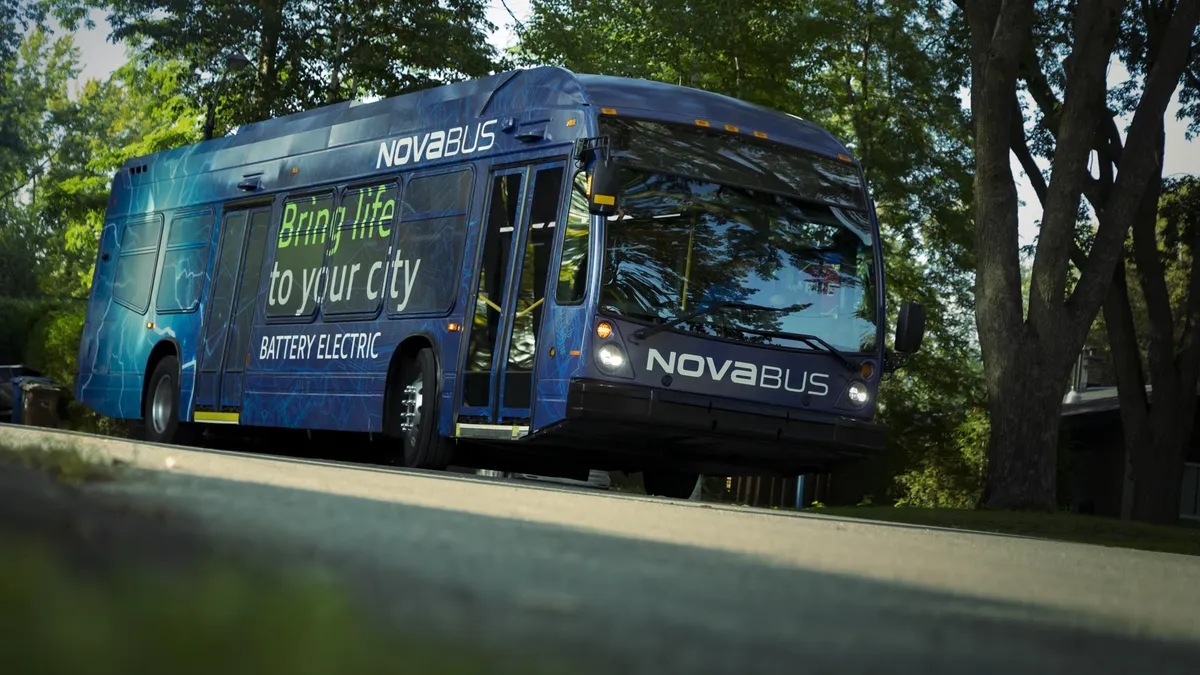As federal money from the 2021 bipartisan infrastructure law begins to flow, growing numbers of transit agency orders for electric buses are challenging bus manufacturers to deliver these vehicles amid continued supply chain disruptions.
The Federal Transit Administration announced in August that about $1.6 billion in grants has been made available to transit agencies, territories and states for the purchase of more than 1,800 new buses, including at least 1,100 zero-emission buses.
Order books for transit bus manufacturers continue to grow. Volvo Group, which owns transit bus maker Nova Bus, said in its third-quarter report that demand for electric city buses “remains high.”
GILLIG, a California-based bus manufacturing company, said in a press release that nearly half its customers are using FTA funding to purchase battery-electric buses. In its third-quarter letter to shareholders, Proterra, a bus and battery manufacturer, said it expects the federal funding “to lead to significant growth in demand across the industry in the months ahead.”
New Flyer, with five transit bus factories in the U.S. and Canada, reported a 17% increase in new firm and option orders in the third quarter, but said in its Q3 shareholder letter that “deliveries remain significantly lower than pre-COVID-19 levels due to global supply chain logistics challenges and related production inefficiencies.”
David Cooke, senior associate director at Ohio State University’s Center for Automotive Research, noted the importance of fleet electrification planning for transit agencies. Not only is a transition plan required by the FTA, but Cooke said the availability of buses, chargers and other necessary infrastructure hardware could come at different times, perhaps years apart. “So I can't underscore enough how important transition planning is,” he said.












